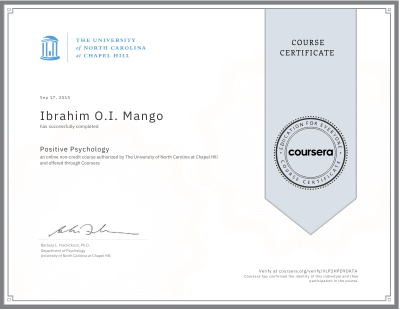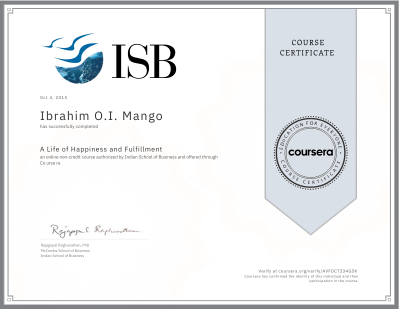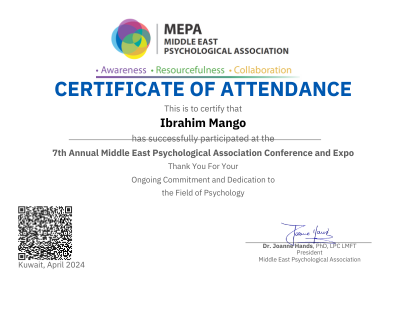Have you ever felt that nagging sense of unease when your actions don’t quite match your core beliefs? It’s a common experience, especially for professionals facing the pressures of tight deadlines and high expectations. When your choices feel disconnected from your values, confidence can take a serious hit.
Imagine standing at a crossroads where every decision feels heavy with uncertainty. Yet, there's a powerful remedy: aligning your actions with your values. This alignment isn’t just about making choices; it’s about living authentically. When you align your actions with your values, you empower yourself to navigate life with clarity and conviction.
In this blog, we’ll dive into the importance of values, explore the pitfalls of misalignment, and provide you with practical steps to cultivate unshakeable confidence through value-driven living.
The Importance of Values in Professional and Social Confidence
Values serve as the bedrock of our identity. They define who we are and shape our decision-making processes. When you consciously align your actions with your core values, you cultivate a sense of authenticity that radiates confidence. This authenticity allows you to act with integrity, leading to stronger relationships, increased job satisfaction, and a sense of fulfillment in both personal and professional life.
For instance, if you value honesty and transparency in your workplace, you are likely to build trust with colleagues and superiors. This trust creates a supportive environment, enhancing your self-esteem and confidence to express ideas and take initiative. When you know that your actions reflect your beliefs, you’re less likely to second-guess yourself and more likely to assert your viewpoints confidently.
Moreover, aligning with your values helps you navigate challenges more effectively. When faced with difficult decisions, referring back to your core principles provides clarity and direction, enabling you to make choices that bolster your self-esteem and personal integrity.
The Confidence-Killing Effect of Value Misalignment
Living out of alignment with your values can be a recipe for disaster. It creates an internal conflict that undermines your confidence and well-being. When you compromise your beliefs to conform to external expectations or pressure, you may feel a growing sense of discontent, anxiety, and self-doubt. This internal struggle leads to cognitive dissonance, where your actions contradict your beliefs, resulting in stress and unhappiness.
Consider the following scenario: A professional who values creativity is stuck in a rigid corporate structure that stifles innovation. Despite their dissatisfaction, they might suppress their creative instincts to fit in or gain approval. Over time, this suppression leads to frustration, burnout, and a dwindling sense of self-worth. The more they align with the corporate culture, the more they stray from their true self, ultimately diminishing their confidence.
Moreover, value misalignment can hinder your ability to establish authentic connections with others. When you’re not being true to yourself, it becomes challenging to engage genuinely with colleagues or friends, leading to superficial relationships and a feeling of isolation.
Boost Your Confidence by Aligning Your Actions With Your Values
Here are actionable steps to help you align your actions with your values and, in turn, boost your confidence:
1. Start by Clarifying What You Stand For:
The first step toward alignment is to define your core values. What principles guide your life? Take time to reflect on the beliefs that resonate with you deeply and write them down. Consider aspects like integrity, family, creativity, health, or community service.
Create a “values inventory” by jotting down situations where you felt proud or fulfilled. Analyze what values were at play in those moments. This exercise will illuminate your core beliefs and provide clarity.
Let’s say you identify “innovation” as a core value. This acknowledgment might inspire you to pursue roles or projects that allow you to express your creativity and develop new ideas, whether in product development or team brainstorming sessions.
2. Make Values-Based Decisions in Professional Settings:
Once you’ve clarified your values, integrate them into your decision-making process at work. When faced with choices, ask yourself how they align with your core beliefs. Prioritizing values will lead to decisions that feel right and authentic.
Develop a decision-making framework that incorporates your values. Before taking on new projects, consider whether they align with your principles. If collaboration is a value, seek out opportunities that promote teamwork and cooperation.
Imagine you have the chance to lead a project that doesn’t align with your values. By considering your commitment to teamwork and transparency, you might decide to suggest a collaborative approach that incorporates diverse perspectives, fostering a sense of community and shared success.
3. Align Your Social Interactions With Your Values:
Social confidence flourishes when your interactions reflect your core values. Surrounding yourself with individuals who share similar beliefs nurtures authentic connections and empowers you to express yourself without fear.
To identify social circles or groups that resonate with your values, start by clarifying what principles are most important to you. Then, explore online platforms like social media groups and forums dedicated to your interests. Attend networking events, workshops, or conferences that align with your values, and consider joining local clubs or organizations that reflect your beliefs. Additionally, leverage community resources like libraries and universities, which often host events and programs that can connect you with like-minded individuals. By creating connections with those who share your values, you’ll enhance your social confidence and build a supportive network.
If you value community service, consider volunteering for local nonprofits or charities. This involvement will introduce you to like-minded individuals who share your passion, fostering a sense of belonging and boosting your confidence in social settings.
4. Take Consistent Action in Alignment With Your Values:
Confidence is built through action. Start incorporating your values into your daily behaviors, even in small ways. The more you consistently act in alignment with your values, the more confident you will become in your choices and interactions.
Set specific, values-driven goals for yourself. These goals should reflect what you want to achieve while honoring your core values. Create a plan to take small, consistent actions toward these goals.
If you value health and well-being, commit to a daily exercise routine that aligns with that value. This might involve setting aside time each morning for physical activity. As you consistently prioritize your health, your confidence in your abilities will grow, positively influencing other areas of your life.
5. Let Go of People-Pleasing and Focus on Integrity:
People-pleasing behavior often stems from a fear of judgment or rejection, leading to misalignment with your values. Instead, focus on maintaining your integrity and staying true to yourself, even when it’s uncomfortable.
Practice assertiveness in your interactions. Clearly communicate your thoughts and boundaries, allowing your values to guide your responses. This honesty fosters respect from others and reinforces your self-worth.
If a colleague asks you to compromise your standards for a project, instead of acquiescing, assert your perspective respectfully. For instance, you might say, "I appreciate your suggestion, but I believe we should maintain our quality standards to ensure the project’s success. I think it’s essential that we deliver the best possible results to our clients. Can we explore alternative solutions that meet both our goals?" By standing firm in your values in this way, you reinforce your commitment to integrity and boost your confidence in your decision-making.
6. Reassess and Realign Regularly:
Values can evolve as you grow, so it’s essential to reassess and realign regularly. Take time to reflect on your values and actions periodically. Are they still aligned? Are there new values you want to incorporate into your life?
Set aside time each month to evaluate your actions and decisions. Ask yourself how well they align with your current values and what adjustments you need to make.
If you realize that your professional life has shifted away from your initial values, take the necessary steps to realign. This might mean seeking a new job, adjusting your role, or engaging in new projects that resonate with your current beliefs. Regular reflection ensures you remain aligned and confident in your choices.
Conclusion
Embracing your values in the workplace isn't just idealistic — it's a pragmatic approach to building genuine confidence and credibility. When you consistently make decisions that align with your core beliefs, you develop a sense of authenticity that resonates with colleagues and clients alike.
This alignment doesn't require a grand overhaul of your career. Begin by identifying a key value that's central to your professional identity. Then, consciously incorporate this value into your daily decision-making process. Over time, these choices compound, shaping your reputation and bolstering your self-assurance in meaningful ways.
Be prepared: this path may present challenges. You might need to decline opportunities that compromise your principles or voice unpopular opinions that align with your values. However, it's precisely these moments of principled action that distinguish true leaders. By staying true to your values, you're not only cultivating personal confidence but also establishing a foundation for lasting professional impact.
FAQs
1. How can I identify my core values if I'm unsure where to start?
To identify your core values, begin by reflecting on moments in your life when you felt truly fulfilled or proud. Consider what principles were in play during those times. You can also explore values lists available online to see which resonate with you. Journaling about your experiences and feelings can help clarify what truly matters to you.
2. What should I do if my workplace culture conflicts with my values?
If you find yourself in a workplace that conflicts with your values, start by assessing whether there are small changes you can make to align your actions with your beliefs. This might involve seeking projects that reflect your values or finding allies within your organization. If the misalignment is significant, consider whether it's worth exploring new job opportunities that better match your principles.
3. How long does it take to feel the effects of aligning my actions with my values?
The timeline for experiencing the effects of aligning your actions with your values can vary based on individual circumstances. Many people begin to feel more confident and fulfilled within a few weeks of consistently taking value-driven actions. However, deep-seated changes in self-esteem and overall satisfaction may take longer, depending on your commitment to the process and the degree of misalignment initially experienced.










